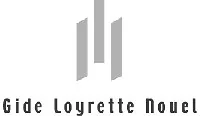ARTICLES
02 Dec 2009 | France
12 Dec 2008 | France
10 Sep 2008 | France
15 May 2008 | France
17 Apr 2008 | France
02 Nov 2006 | France
14 Jun 2006 | France

Contact Details
Paris
Paris
France